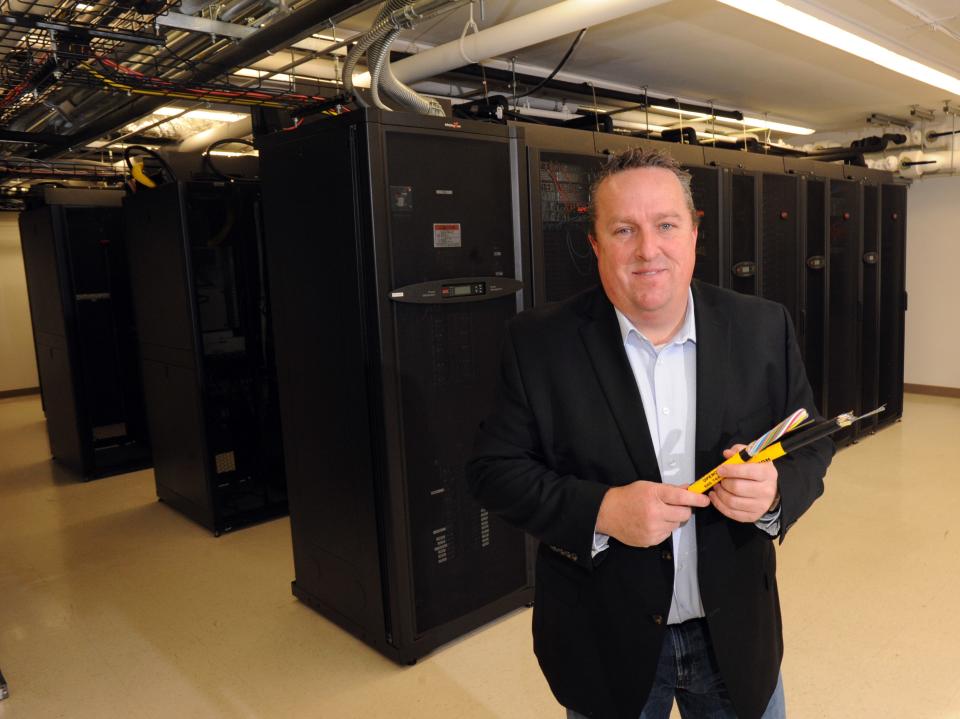Public urged to take statewide broadband survey
A statewide survey on broadband services and internet availability now open to residents and business owners will help determine how $147 million in federal money will be distributed to bridge the digital divide.
The survey, by the Massachusetts Broadband Institute, is the first step in drawing on money from the Bipartisan Infrastructure Law, which earmarks $65 billion to help ensure that every American has access to reliable high-speed internet.
Need determines where the money goes
The statewide survey includes questions about household income, zip code to provide location, service provider, type and cost of service provided, and any difficulty using the service. There are questions that drill down to specific demographic details.

In 2014, the institute completed construction of nearly 1,200 miles of a fiber optic network capable of high-speed internet connectivity in 123 western and central Massachusetts towns. The project cost $89.7 million and was paid for with state and federal money.
Steven Johnston, executive director and CEO of the nonprofit internet provider OpenCape, doesn't dispute that central and western Massachusetts need infrastructure, but he hopes the Cape will see some of the $47 million distributed the next time around.
“The state has spent $118 million over the last seven to eight years on last mile connectivity in western Massachusetts,” Johnston said. “We haven’t seen the same attention on southeastern Mass(achusetts), the Cape and Islands.”
Johnston said access to high-speed reliable internet is necessary for everything that drives the economy, including job creation, economic development, education, health care, and the ability to work remotely. Portions of the Cape suffer from inadequate infrastructure and modest internet speeds. The nonprofit has built 600 miles of high speed fiber optic infrastructure in southeastern Massachusetts, including the Cape.
“A huge portion of the Cape is underserved,” Johnston said.
The nuts and bolts
Internet providers offer different speeds at which data can be transmitted. The higher the speed, the more expensive the service. The Cape's seasonal economy, which doubles the 220,000 year-round population in the summer, means many can't connect to the network, or they lose connection easily.
Some popular beach locations don't have access to the internet at all, a challenge when medical emergencies arise. And many rural areas on the Outer Cape have very limited or no access to the internet. A plan may promise Cape residents download speeds anywhere from 25 to 1,000 Mbps (millions of bits, or megabits, per second) but not be able to deliver that on a busy day or when storms disrupt power and cable lines.
How will the money be distributed?
Michael Baldino, director of the Massachusetts Broadband Institute, wrote in an email that the Biden-Harris administration has allocated the money under the Broadband Equity, Access, and Deployment (BEAD) program to close digital equity gaps in Massachusetts.
"MBI is currently developing a five-year action plan and proposal that is being informed by ongoing engagement with the Massachusetts Broadband and Digital Equity Working Group and direct input on the lived experiences of Massachusetts residents, gathered through listening sessions, focus groups and the statewide Digital Equity survey," he wrote. "The action plan and proposal will provide a framework for the deployment of BEAD federal funding."
The Survey:
The online survey can be found at https://made.civilspace.io/en/projects/ma-digital-equity/engagements/ma-sdep-public-survey/sections/1 . The institute intends to use the results to develop a Digital Equity Plan that ensures equitable internet access. Massachusetts residents should respond on behalf of their household. Only one respondent per household can take the five-minute survey.
Deadlines:
The survey will be accessible through September, followed by listening sessions and focus groups. The public is being asked to answer questions about internet access, adoption, affordability, digital skills training, and device availability. Focus groups will gather comment from underrepresented communities identified by the federal programs.
The institute has not yet scheduled a date and location for a Cape Cod listening session. For more information and updates, go to https://broadband.masstech.org/internetforall.
Denise Coffey writes about business and tourism. Contact her at dcoffey@capecodonline.com. Follow her on Twitter: @DeniseCoffeyCCT.
Thanks to our subscribers, who help make this coverage possible. If you are not a subscriber, please consider supporting quality local journalism with a Cape Cod Times subscription. Here are our subscription plans.
This article originally appeared on Cape Cod Times: Broadband survey could guide how federal money is handed out

